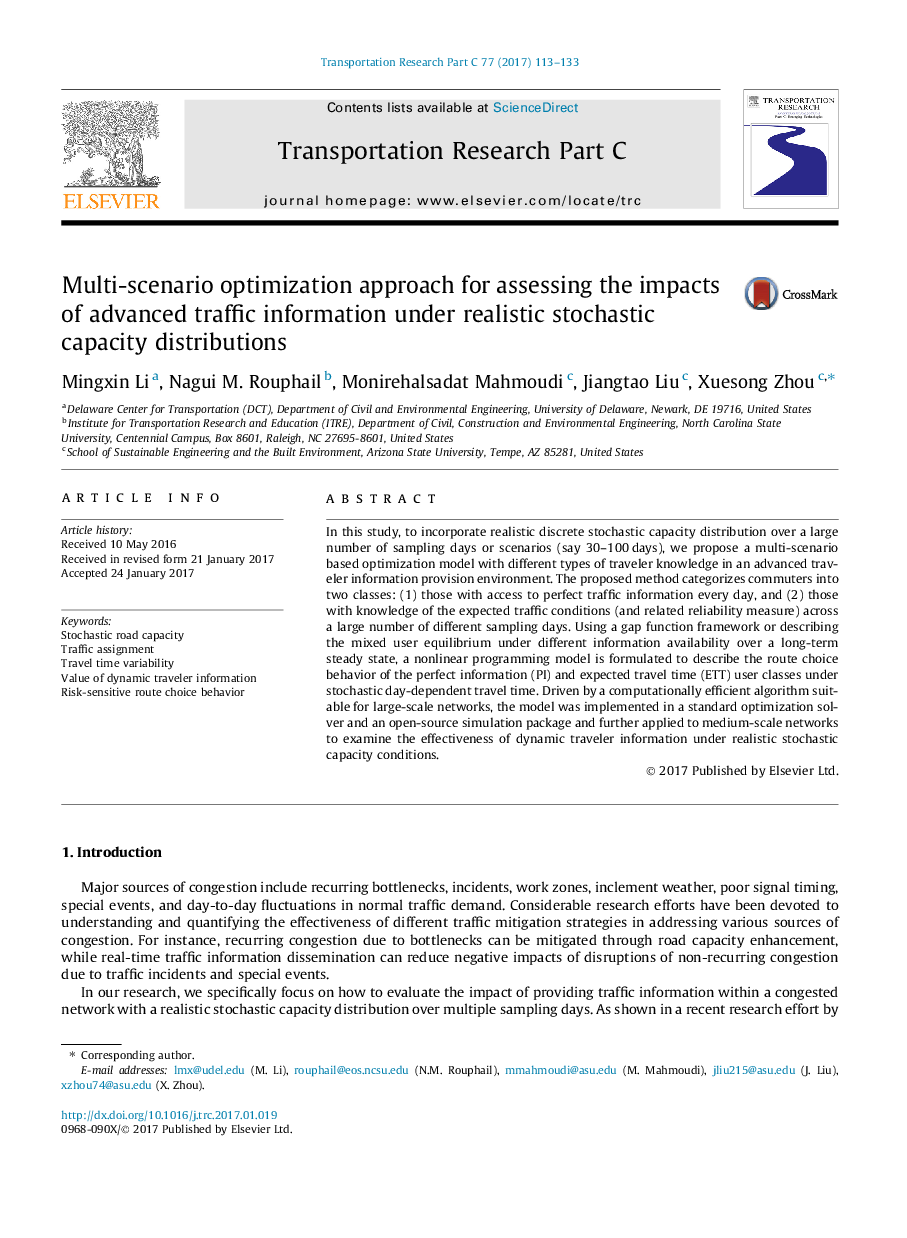| Article ID | Journal | Published Year | Pages | File Type |
|---|---|---|---|---|
| 4968623 | Transportation Research Part C: Emerging Technologies | 2017 | 21 Pages |
Abstract
In this study, to incorporate realistic discrete stochastic capacity distribution over a large number of sampling days or scenarios (say 30-100Â days), we propose a multi-scenario based optimization model with different types of traveler knowledge in an advanced traveler information provision environment. The proposed method categorizes commuters into two classes: (1) those with access to perfect traffic information every day, and (2) those with knowledge of the expected traffic conditions (and related reliability measure) across a large number of different sampling days. Using a gap function framework or describing the mixed user equilibrium under different information availability over a long-term steady state, a nonlinear programming model is formulated to describe the route choice behavior of the perfect information (PI) and expected travel time (ETT) user classes under stochastic day-dependent travel time. Driven by a computationally efficient algorithm suitable for large-scale networks, the model was implemented in a standard optimization solver and an open-source simulation package and further applied to medium-scale networks to examine the effectiveness of dynamic traveler information under realistic stochastic capacity conditions.
Related Topics
Physical Sciences and Engineering
Computer Science
Computer Science Applications
Authors
Mingxin Li, Nagui M. Rouphail, Monirehalsadat Mahmoudi, Jiangtao Liu, Xuesong Zhou,
